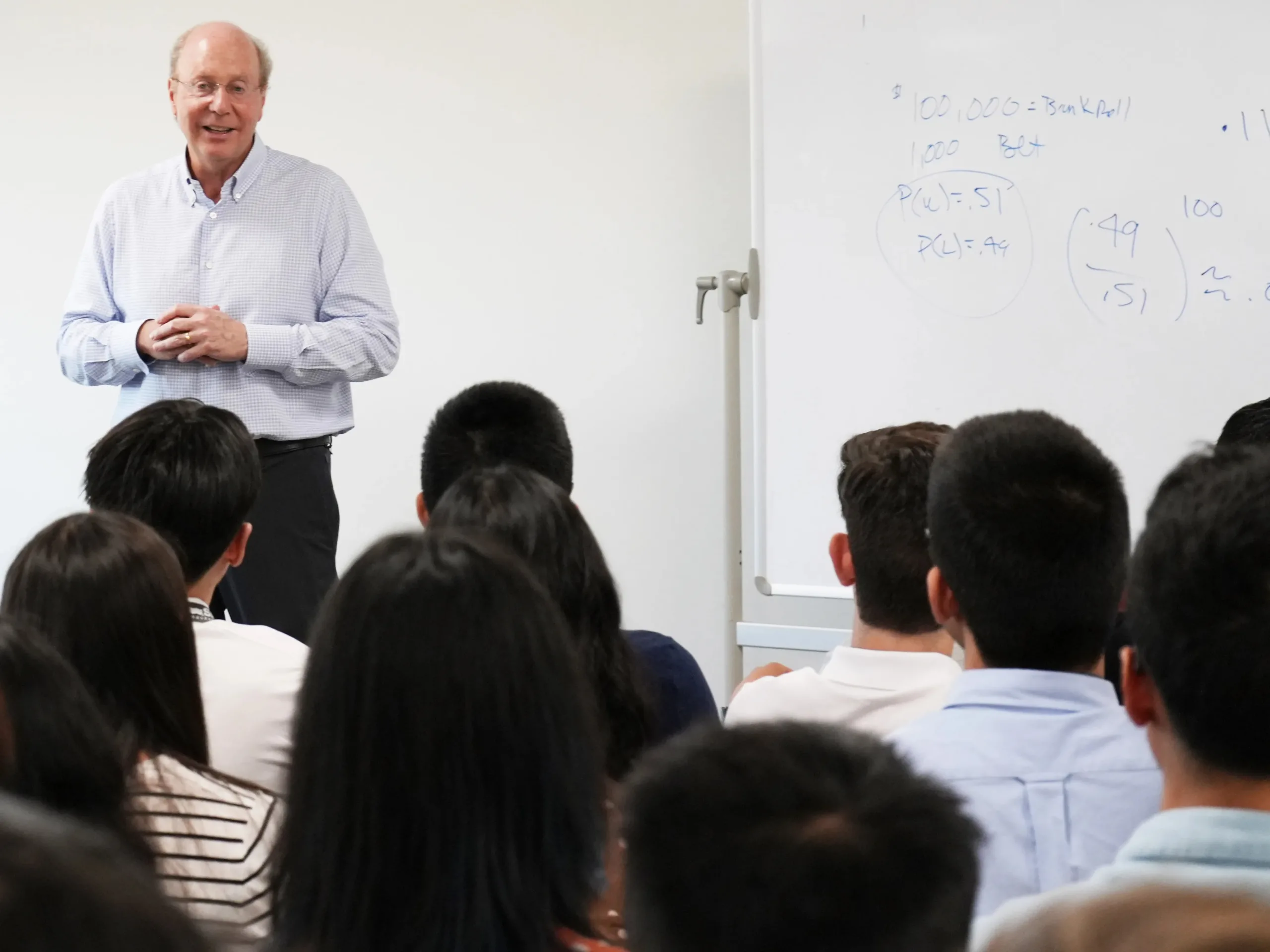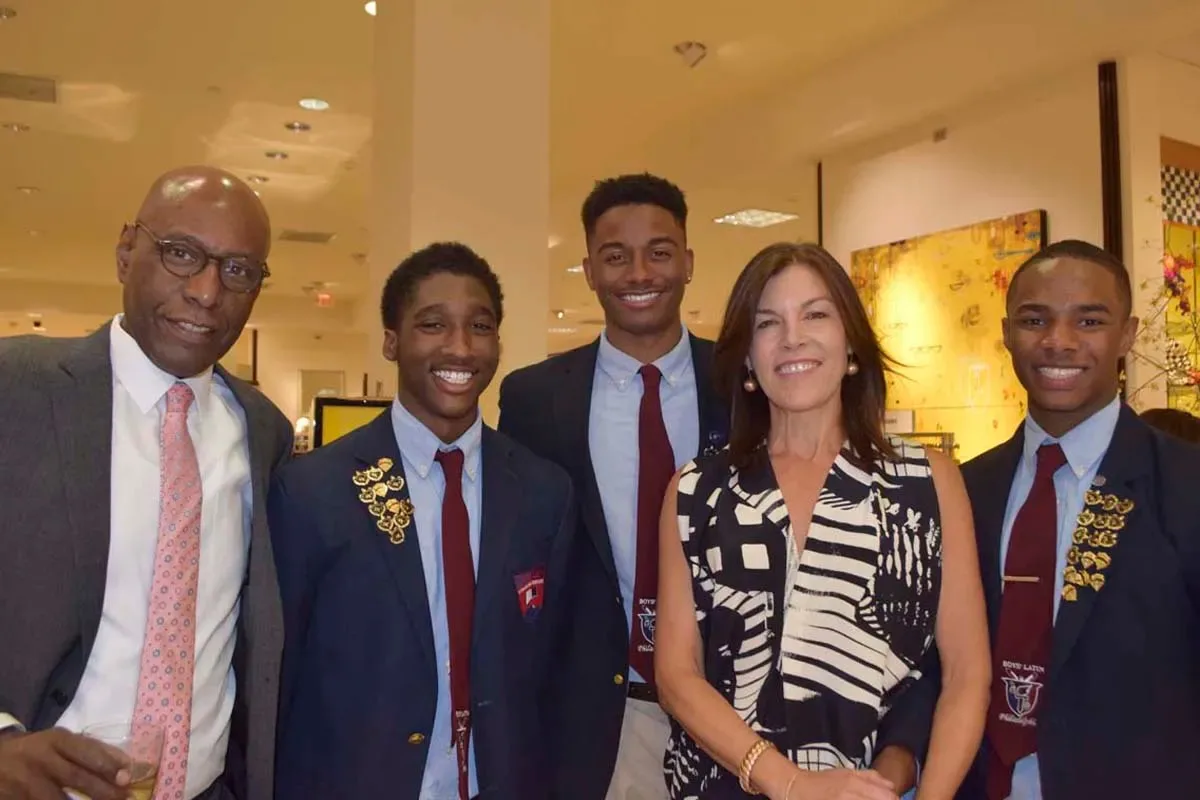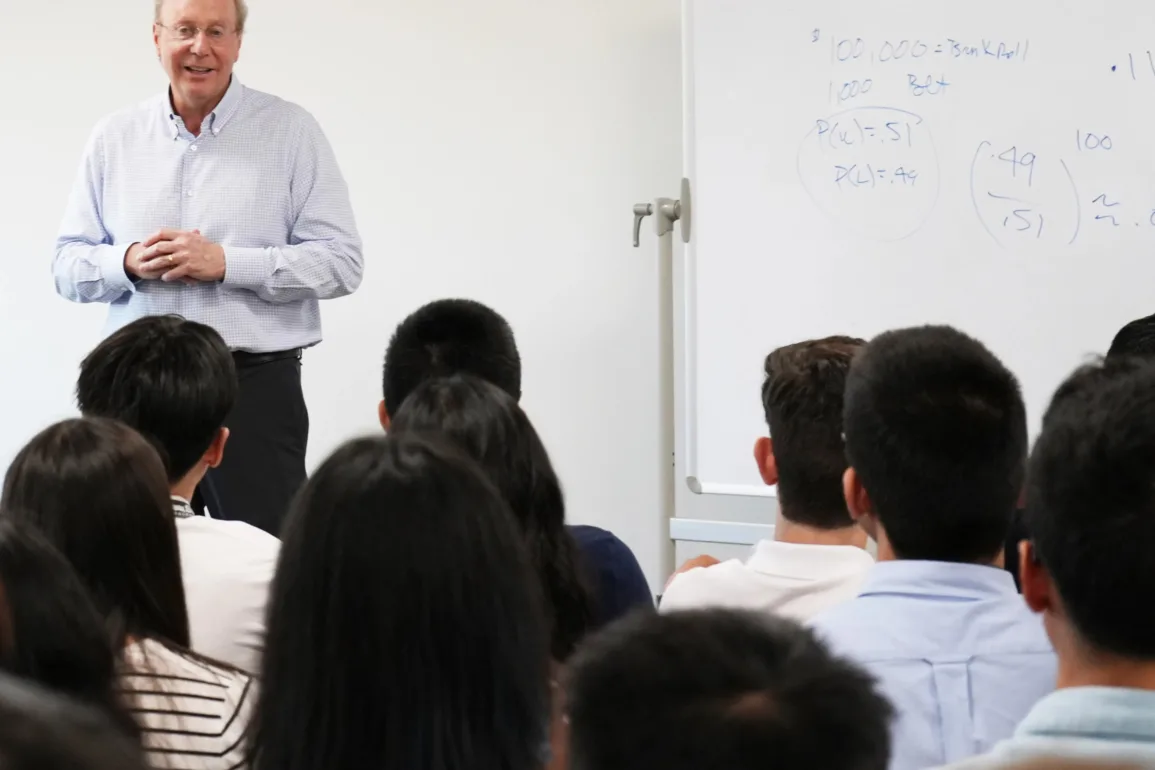Earlier this month, Gov. Josh Shapiro made a decision that will have a catastrophic effect on the state’s schoolchildren: He threatened to veto the Lifeline Scholarships program contained in the state budget — backtracking on the support he expressed during his campaign for giving parents in Pennsylvania some degree of educational freedom.
People sometimes ask why education is such a large part of our personal focus. We are motivated by the terrible costs and daily hardships wrought by the failure of public school systems across the country. Here in Pennsylvania, we have schools that have a zero proficiency rating in math — Philadelphia’s John Bartram High School, for example. Nationally, as few as 18% of Black and brown children are proficient in reading. This is unacceptable.
Advocating for educational programs that give parents the power to choose the education they believe is best for their own children is the right thing to do — philosophically, practically, and morally.
Nearly half a century ago, the economist Milton Friedman advised that the best investment in education is choice. He argued that free market principles are a mechanism for improving education. Those who claim that helping parents get access to better schools will hurt the traditional system have been proven wrong by results in states like Arizona, Florida, and Indiana. Most studies have found that when more families have options, education gets better for all.
Critics also miss the most important point: If even one student is suffering, should we not seize the chance to rethink the current, clearly broken model to give them a chance to succeed?
If even one student is suffering, should we not seize the chance to rethink the current, clearly broken model to give them a chance to succeed?
We went to good public schools — Jeff in New York City, and Janine in Kingston, Pa. — and we sent our kids to good schools. We didn’t realize the extent to which Philadelphia schools were so bad until the late 1990s, when a friend took us to see the schools his kids would have attended had they stayed in the city.
Then we learned what was happening around the country, both the challenges and the solutions. When we saw the dramatic improvements in cities from Washington, D.C., to Los Angeles that could be created when parents have choices, we wanted to bring those solutions home.
We wanted to help more children have better options because we believe education could improve the rest of their lives — which could, in turn, create a more equitable society as a whole.
After yet another Philadelphia teenager was murdered this spring, his high school principal said the crisis of violence and death was bigger than gun violence. “It’s a lack of resources. It’s caging kids into systems that don’t connect them to the life they need to succeed,” the principal said. “These kids want different, they want better. But the road that leads them there hasn’t been paved yet.”
We believe the road to a better future is having a great school that personalizes learning for each student and addresses their needs, like Ohio’s Oakmont Education, which delivers individualized learning and the ability to earn nationally recognized work credentials to students who have dropped out. Or locally, Father Judge, a Roman Catholic high school that helps students learn practical career skills, such as computer numerical control machining, HVAC, and construction sciences.

Yet, for too many kids, their schools are not havens of learning, but “cages” from which to escape. This reality consistently brings calls for increased school funding. But funding is not the issue. Failure is.
In the 2021-22 academic year, Philadelphia spent more than $25,000 per district student, according to an independent analysis of a 2022 audit of the school system. That’s twice the amount spent 20 years earlier in inflation-adjusted dollars.
Since 2016, district school spending has increased by $800 million to approximately $3 billion, while enrollment declined by more than 16,000 students and total district employees increased by more than 3,400 people.
Thirty-seven percent more spending, 20% more employees, 12% fewer students, and what did it get? A consistent decline in educational outcomes. The district’s overall math proficiency rating recently fell from 21% to 15%, and five schools had math proficiency ratings ranging from 2% to zero.
Clearly, money isn’t the solution. The system simply doesn’t work for a huge number of kids who are often seen as “troubled” or “unreachable” when it comes to learning.

“Kids want different, they want better.” Why would anyone deny them? Why on Earth would you close off opportunities for children to pursue learning elsewhere? Why would you insist they be held hostage in a system that, by any measure, is failing to help them and, in many ways, is doing them lifelong harm?
Let parents spend that money instead.
A single mother with three children in cities like ours is essentially a millionaire, as almost $1 million will be spent on her children’s K-12 education over 13 years. She could spend half of that on better schools, leaving the rest in an education account for the student to spend when they graduate to pay for college, start a business, or purchase a house. But today that mother has little to bank on but an inadequate education and constant worry if her child will make it home from school safely.
There are other compelling philosophical and economic aspects to our advocacy. Choice represents an expansion of personal liberty, whereas public schools are government monopolies based on geography and zip codes. Unless you have the wherewithal to afford private schools, secure a seat in a quality charter school, or test into elite magnet schools, you are a virtual prisoner in the school to which you were assigned.
Giving parents the freedom to choose requires having elected officials who work hard toward that ideal.
Giving parents the freedom to choose requires having elected officials who work hard toward that ideal. The teachers’ unions provide publicly derived money and foot soldiers to candidates who promise to protect the status quo and scuttle choice efforts, while parents and choice advocates have far fewer resources. Part of our advocacy is to support candidates who champion choice and charters and to oppose those who don’t.
Parents who want choice should not have to fight elected officials who exercise choice for their own children. It’s hypocrisy.
We do what we do on behalf of the tens of thousands of low-income residents, those stuck in failing schools, or those serving in prison because their schools failed them. We contribute wherever politics stymie transformational learning opportunities, in places across the country where teachers want to open such schools, and where parents need help making their voices heard.
Good schools make a difference in the lives of individuals, clearly, but also as community assets. They lend to the foundation of what makes for a stable, safe, prosperous community. Bad schools consign young people to lives of endless struggle and failure, leaving individuals, families, and communities defeated, damaged, and broken.
Steve Perry, a pioneering African American educator who is the founder and head of Capital Preparatory Schools, noted that in the 1960s, Black parents led the fight to get into public schools. “Now,” he said in a recent talk, “we are fighting to get out.”
Why do we support educational freedom? We do this because we can, and because it’s the right thing to do.
Jeff Yass is a founder and managing partner of Susquehanna Investment Group. Janine Yass is a longtime education advocate and founder and chair of the Yass Prize for Sustainable, Transformational, Outstanding and Permissionless Education.



